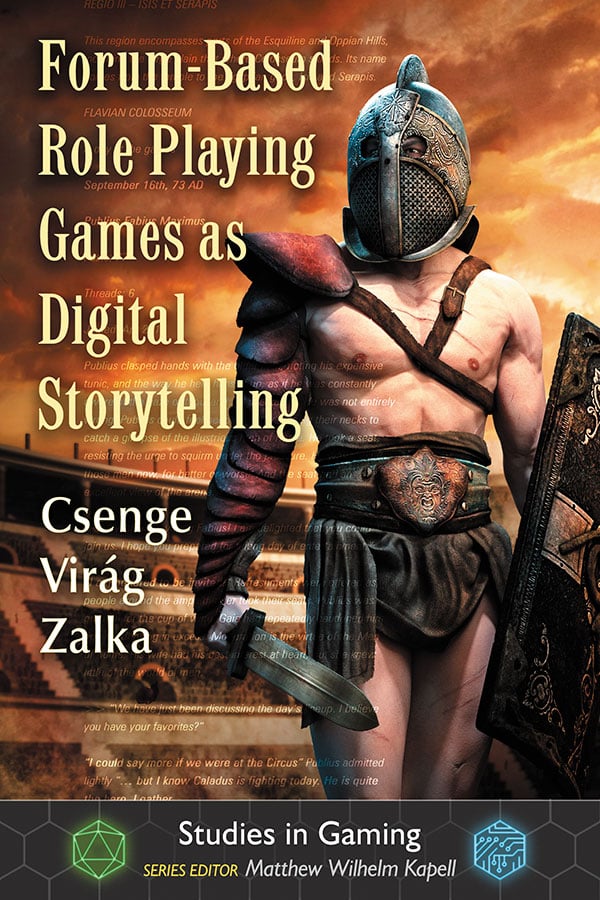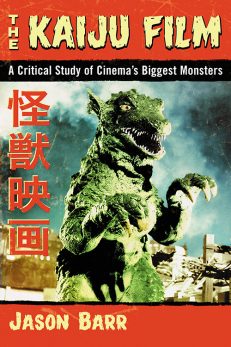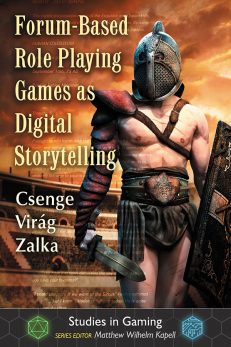Forum-Based Role Playing Games as Digital Storytelling
$29.95
In stock
About the Book
When people hear the term “role-playing games,” they tend to think of two things: a group of friends sitting around a table playing Dungeons & Dragons or video games with exciting graphics. Between those two, however, exists a third style of gaming. Hundreds of online forums offer gathering places for thousands of players—people who come together to role-play through writing. They create stories by taking turns, describing events through their characters’ eyes. Whether it is the arena of the Hunger Games, the epic battles of the Marvel Universe or love stories in a fantasy version of New York, people build their own spaces of words, and inhabit them day after day. But what makes thousands of players, many teenagers among them, voluntarily type up novel-length stories? How do they use the resources of the Internet, gather images, sounds, and video clips to weave them into one coherent narrative? How do they create together through improvisation and negotiation, in ways that connect them to older forms of storytelling? Through observing more than a hundred websites and participating in five of them for a year, the author has created a pilot study that delves into a subculture of unbounded creativity.
About the Author(s)
Csenge Virág Zalka is a professional storyteller and researcher from Budapest, Hungary. Her interests focus on role-playing games as a form of storytelling, historical fiction, oral traditions and popular culture.
Series editor Matthew Wilhelm Kapell teaches American studies, anthropology, and writing at Pace University in New York.
Bibliographic Details
Csenge Virág Zalka
Series Editor Matthew Wilhelm Kapell
Format: softcover (6 x 9)
Pages: 215
Bibliographic Info: 15 photos (4 in color), appendices, glossary, bibliography, index
Copyright Date: 2019
pISBN: 978-1-4766-7284-7
eISBN: 978-1-4766-3526-2
Imprint: McFarland
Series: Studies in Gaming
Table of Contents
Preface 1
Introduction: “Do you want to thread?” 5
One—Stories at the Crossroads: Theorizing Forum Games 31
The Theory of Play and the Theory of Interactivity 32
Forum Games as Narratives 35
Play Versus Narrative 37
Fandom and Fan Fiction 39
Between pages 40 and 41 are 4 color plates containing 4 photographs
Two—Thread by Thread: Shaping Language and Narrative in Forum Games 41
Improvisation and Collaboration 42
Regulating Language and Narrative 54
Regulating Language and Narrative Through Player Behavior 64
Between You and Me: A Case Study of Consent 73
Developing Language and Writing Skills 80
Trends in Activity and Popularity 87
From Language to Multimodality 93
Three—Beyond Words: Multimodality in Forum-Based Role-Playing 96
Images—The Visual Mode 100
Music and Sound—The Aural Mode 118
Movement—The Gestural Mode 124
Layout—The Spatial Mode 128
Numbers and Coding—The Numeric Mode 139
Time—The Temporal Mode 150
The Case Study of the Mad Hatter: Representing Characters Through Multimodal Posts 156
Conclusion 164
Four—From Classroom to Big Screen: The Possibilities of Forum Gaming 166
Forum RPGs as a Distinct Gaming Style 166
“But is it really storytelling?” 170
Forum Games and the Composition Classroom 175
Forum Games and Language Education 179
Forum Games in Transmedia Storytelling Projects 181
Appendix A: Site Sample 185
Appendix B: Coding Criteria 188
Appendix C: Glossary of Terms 191
Works Cited 195
Index 201
Author Interview
 Review Fix chats with Forum-Based Role Playing Games as Digital Storytelling and Tales of Super Human Powers author Csenge Virág Zalka who lets us know what inspired the book and more.
Review Fix chats with Forum-Based Role Playing Games as Digital Storytelling and Tales of Super Human Powers author Csenge Virág Zalka who lets us know what inspired the book and more.
Review Fix: What is a Forum-Based Role Playing Game?
Csenge Virág Zalka: It is a role-playing game that people play in written text, on online messaging boards. Sometimes it is also called play-by-post gaming. You make a character, and when you play with someone, you take turns describing events from your character’s point of view. That’s how the story progresses; you improvise, surprise each other, and have fun. In the case of most sites, the entire website is dedicated to one game world, in which many characters exist and interact at the same time. It can be a world that the creators of the forum made up (an original setting), or one based on an existing text (fandom-based forums).
Review Fix: What makes this subject worthy of a book like this in your opinion?
Zalka: I began researching forum games because I was playing them (I have been a forum gamer for more than 10 years), and I found out from various conversations that they were not very well known, even to people who are in Game Studies. So, when it came to choosing a dissertation topic, I decided to do a pilot project and bring this style of gaming into the academic light. I was also intrigued by the stories that are born from these games. As a performing storyteller, I often run into the discussion of what counts as “digital storytelling”, and whether it should be regarded as “real storytelling” at all. I wanted to examine this question of digital storytelling through role-playing games, and forum games, where thousands of stories are created through playful collaboration every day, are a great example.
Review Fix: What was the writing process like for this one?
Zalka: The book was born from my dissertation. I spent a year researching forum RPGs. I collected a sample of 100 sites, and coded them based on a long list of features, to have a diverse basis for comparison. Then I selected five sites that I played on for ten months, as a participant observer. While I was playing, and experiencing the games first-hand (and having lots of fun), I also interviewed other forum gamers, and integrated their responses and interpretations into my research. After I defended my dissertation, I went through the process of re-writing it as a book (which meant rearranging and pruning the Lit Review section, among others). It was a four-year process, from research to publication, but totally worth it!
Review Fix: How is it different from your other books?
Zalka: Mostly because of the topic. Researchers in various fields have looked into forum RPGs before, but as far as I know, mine was the first study that focused on them specifically, and on a larger scale. It is also interesting because it connects text-based gaming to the idea of digital storytelling, from a performing storyteller’s point of view. Having an insider’s view of academia, as well as the world of international storytelling, I had the chance to write in a way that both sides are considered when I use the term “storytelling” in this context.
Review Fix: How do you think people will feel about Forum-Based Role Playing Games in a decade or so?
Zalka: I hope they will still be playing them! I know I don’t plan on quitting anytime soon. We might have all kinds of new gaming technologies, which are great (and I enjoy them too), but I’d like to believe that the written word, and being able to freely write up stories together, is not going anywhere either.





